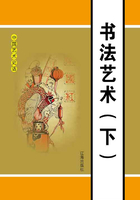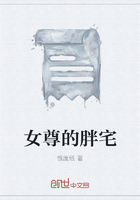When the meal was over, the queen sent for all her servants; then; before the table was cleared of anything, she poured out a cup of wine, rose and drank to their health, asking them if they would not drink to her salvation. Then she had a glass given to each one: all kneeled down, and all, says the account from which we borrow these details, drank, mingling their tears with the wine, and asking pardon of the queen for any wrongs they had done her. The queen granted it heartily, and asked them to do as much for her, and to forget her impatient ways, which she begged them to put down to her imprisonment. Then, having given them a long discourse, in which she explained to them their duties to God, and exhorted them to persevere in the Catholic faith, she begged them, after her death, to live together in peace and charity, forgetting all the petty quarrels and disputes which they had had among one another in the past.
This speech ended, the queen rose from table, and desired to go into her wardrobe-room, to see the clothes and jewels she wished to dispose of; but Bourgoin observed that it would be better to have all these separate objects brought into her chamber; that there would be a double advantage in this, she would be less tired for one thing, and the English would not see them for another. This last reason decided her, and while the servants were supping, she had brought into her ante-room, first of all, all her robes, and took the inventory from her wardrobe attendant, and began to write in the margin beside each item the name of the person it was to be given to.
Directly, and as fast as she did it, that person to whom it was given took it and put it aside. As for the things which were too personal to her to be thus bestowed, she ordered that they should be sold, and that the purchase-money should be used for her servants' travelling expenses, when they returned to their own countries, well knowing how great the cost would be and that no one would have sufficient means.
This memorandum finished, she signed it, and gave it as a discharge to her wardrobe attendant.
Then, that done, she went into her room, where had been brought her rings, her jewels, and her most valuable belongings; inspected them all, one after the other, down to the very least; and distributed them as she had done her robes, so that, present or absent, everyone had something. Then she furthermore gave, to her most faithful people, the jewels she intended for the king and queen of France, for the king her son, for the queen-mother, for Messieurs de Guise and de Lorraine, without forgetting in this distribution any prince or princess among her relatives. She desired, besides, that each should keep the things then in his care, giving her linen to the young lady who looked after it, her silk embroideries to her who took charge of them, her silver plate to her butler, and so on with the rest.
Then, as they were asking her for a discharge, "It is useless," said she; "you owe an account to me only, and tomorrow, therefore, you will no longer owe it to anyone"; but, as they pointed out that the king her son could claim from them, "You are right," said she; and she gave them what they asked.
That done, and having no hope left of being visited by her confessor, she wrote him this letter :
"I have been tormented all this day on account of my religion, and urged to receive the consolations of a heretic: you will learn, through Bourgoin and the others, that everything they could say on this matter has been useless, that I have faithfully made protestation of the faith in which I wish to die. I requested that you should be allowed to receive my confession and to give me the sacrament, which has been cruelly refused, as well as the removal of my body, and the power to make my will freely; so that I cannot write anything except through their hands, and with the good pleasure of their mistress. For want of seeing you, then, I confess to you my sins in general, as I should have done in particular, begging you, in God's name, to watch and pray this night with me, for the remission of my sins, and to send me your absolution and forgiveness for all the wrongs I have done you. I shall try to see you in their presence, as they permitted it to my steward; and if it is allowed, before all, and on my knees, I shall ask your blessing. Send me the best prayers you know for this night and for tomorrow morning; for the time is short, and I have not the leisure to write; but be calm, I shall recommend you like the rest of my servants, and your benefices above all will be secured to you. Farewell, for I have not much more time. Send to me in writing everything you can find, best for my salvation, in prayers and exhortations, I send you my last little ring."
Directly she had written this letter the queen began to make her will, and at a stroke, with her pen running on and almost without lifting it from the paper, she wrote two large sheets, containing several paragraphs, in which no one was forgotten, present as absent, distributing the little she had with scrupulous fairness, and still more according to need than according to service. The executors she chose were: the Duke of Guise, her first cousin; the Archbishop of Glasgow, her ambassador; the Bishop of Ross, her chaplain in chief; and M. du Ruysseau, her chancellor, all four certainly very worthy of the charge, the first from his authority; the two bishops by piety and conscience, and the last by his knowledge of affairs. Her will finished, she wrote this letter to the King of France:














